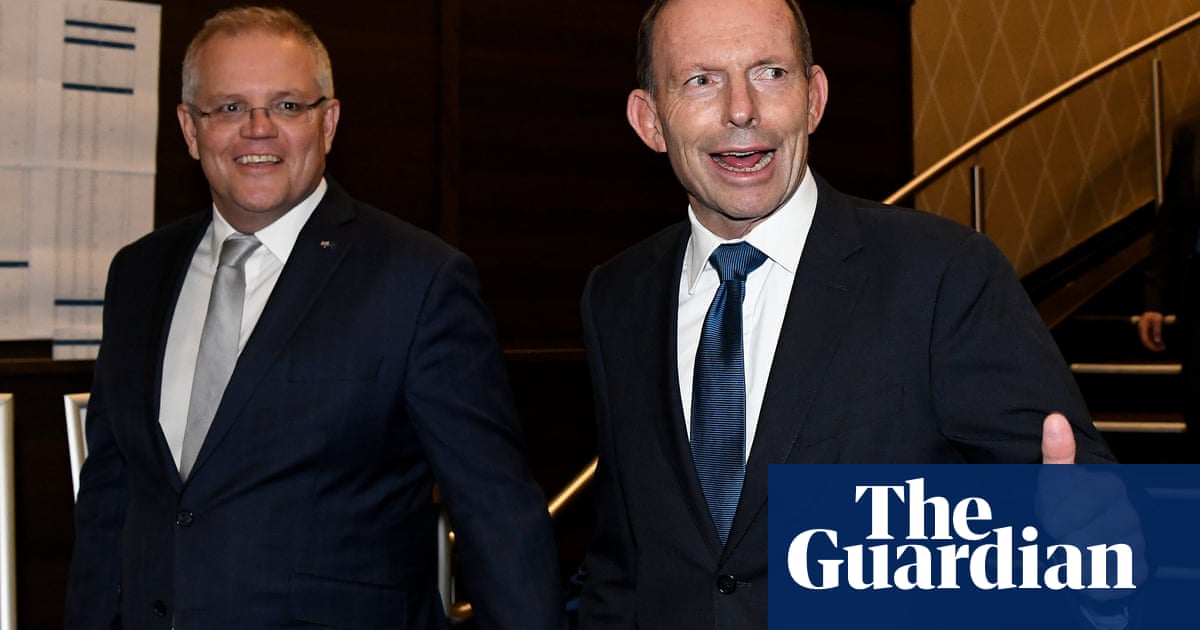Australia’s conservatives praise Trump’s ‘self-belief’ as PM welcomes likely US counterpart

- by Admin
- November 6, 2024

The Australian government is bracing for foreign policy turbulence with Donald Trump’s likely election as US president throwing the defence of Ukraine, Taiwan and combatting the climate crisis into doubt.
Although Kamala Harris is yet to concede defeat in the election, several networks have called the key swing state of Pennsylvania for Trump, and world leaders have moved to acknowledge their new counterpart. The Australian prime minister, Anthony Albanese, released a statement on Wednesday evening local time to congratulate him “on his election victory”.
“Our Government will work closely with the new Trump Administration to realise the benefits of our strong economic partnership,” Albanese said, highlighting the “common values” of the alliance, and the US’s role in the Indo-Pacific region.
“I look forward to talking with President Trump and working with him in the best interests of both our nations.”
Australia’s opposition leader, Peter Dutton, shared his congratulations on behalf of the federal Coalition. He praised the US – “an overwhelming force for good in the world” – as well as the Aukus military pact, centred on acquisition of nuclear submarines from the US.
“May the years ahead be some of the most defining for our Alliance in which … we unleash the defence, industrial and economic opportunities of AUKUS at speed and scale,” Dutton said.
Australian conservatives including two former prime ministers earlier front-ran the Labor government to congratulate Trump.
The former prime minister Tony Abbott said that Trump had the self-belief “the West needs … in spades”:
Despite Trump’s refusal to commit to defence of Ukraine against Russia’s illegal invasion, Scott Morrison claimed on Wednesday that Trump would be a positive force for global security.
“Donald Trump, who is like unlike any other politician you will ever come across … I think what he brings now is an assertiveness and a strength to the role, which I think will have a very positive impact on global security issues,” Morrison told ABC News.
“That means getting in a position of strength and then getting the right outcome; the idea of just fighting to fight tomorrow with no real intent or resource to fight to win – that isn’t a good outcome for global peace and a good resolution in Ukraine, either.
Congratulations to President Trump on his return to the leadership of the free world. Self belief is what the West needs right now and Trump has that in spades
— Tony Abbott (@HonTonyAbbott) November 6, 2024
“I think that is a recipe for calamity. I think president Trump will bring a fresh take on that. And frankly, we need a few fresh takes on some of these challenges, whether it’s there, or in the Middle East.”
Standing in stark contrast was the Greens leader, Adam Bandt, whose statement called the emerging result “a bad day for America, a bad day for Australia, and a bad day for the world”.
“As President, Trump will embolden hate,” Bandt said on Wednesday night local time, calling on Albanese to “urgently cancel AUKUS and reconsider Australia’s relationship with the United States”.
“Australia should be able to make its own decisions including about defence and foreign policy, and not be dictated to by Trump. We cannot be tied to such a dangerous demagogue.”
after newsletter promotion
The Albanese government is already facing calls from the Labor Against War group to withdraw Australia from Aukus.
Labor Against War convener, Marcus Strom, said: “It is completely untenable for Australia to continue in lock-step with a militarised US government led by an unstable president.”
“Being part of a heavily integrated military alliance with a Trump presidency is dangerous, expensive and counter to the interests of the Australian people,” Strom said.
The deputy Australian prime minister and defence minister, Richard Marles, said on Tuesday said that Aukus was secure, no matter who won this week’s US presidential election.
Strom labelled this “an admission from our government that Aukus is mad, bad and dangerous enough that even Donald Trump supports it”.
Morrison said he was “very positive” about the future of Aukus under Trump, saying he “never understood why people would doubt” that Trump would support it.
“It’s a good deal. He was very committed to the alliance”, Morrison said.
“I mean, the point of Aukus is to resist that aggression coming out of China … and if you have that strong deterrent, then you don’t have to use it and but you have to be determined and clear about your willingness to put this in place.”
Also of concern to the Albanese Labor government is likely to be Trump’s environmental policies setting back cooperation on combating global heating.
Australia’s climate change minister, Chris Bowen, noted earlier in November that the Albanese government and the Biden administration have been “closely aligned in policy and personal terms” and “obviously, having a United States administration with a very forward leaning climate policy is a good thing”.
In an interview with Guardian Australia, Bowen suggested a second Trump administration would be unlikely to live up to the former president’s anti-climate rhetoric on the climate crisis.
The Latest News
-
November 6, 2024Western Australian Duo Selected for Blind Ashes Series | Western Australian Cricket Association
-
November 6, 2024How a luck mum turned $100 into $3.2million on the Melbourne Cup
-
November 6, 2024Warner named Sydney Thunder captain, returns to leadership role in Australian cricket after 6 years
-
November 6, 2024Australian Rules-AFL women get prime-time Grand Final
-
November 6, 2024Australia’s conservatives praise Trump’s ‘self-belief’ as PM welcomes likely US counterpart





